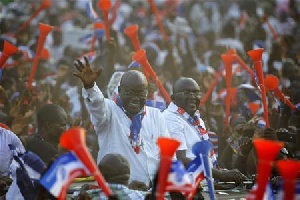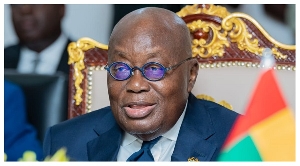Politics of Thursday, 19 February 2015
Source: starrfmonline.com
Akufo-Addo, NPP “bereft” of solutions for power crisis
The governing National Democratic Congress (NDC) has accused the Flagbearer of the main opposition New Patriotic Party (NPP), Nana Akufo-Addo and the party itself of lacking ideas toward solving the worsening power crisis, thus have chosen to exploit the discontentment of Ghanaians by embarking on a demonstration over the issue.
At a press conference held by the NDC Wednesday February 18, 2015, a Deputy Communications Officer, Fred Agbenyo, said rather than offering practical alternatives towards solving the crisis, the NPP’s Flagberer and the party have copped out.
“The expectation of all Ghanaians would have been that Nana Akufo-Addo and his NPP – when they thought it necessary to intervene in the discussion – will focus on the proposal and submission of clear alternative measures to those put forward by Government.
“Rather they chose to cement the widely held notion that the NPP, as presently constituted, is totally bereft of any new ideas and suffers chronic inability to advance alternatives to Government policies,” Mr Agbenyo said.
According to him, “Instead of coming to the table with credible alternatives, they have chosen the cheap option by harvesting the genuine public sentiments over the electricity situation for petty partisan gains.”
“By choosing this path, the NPP has shown that it is simply not up to task of contributing meaningfully to national development,” Mr Agbenyo added.
Mr Akufo-Addo and top NPP members joined an anti-Mahama demonstration Wednesday which attracted thousands of supporters onto the streets of Accra to protest against the Government’s handling of the power crisis, which is crippling Industry and businesses.
Ghana is shedding between 400 and 700 Megawatts of power depending on demand at different periods. The situation has resulted from lack of gas to power some thermal plants in the country as well as poor water levels in the nation’s three hydro-electric power stations: Akosombo, Bui and Kpong dams.











